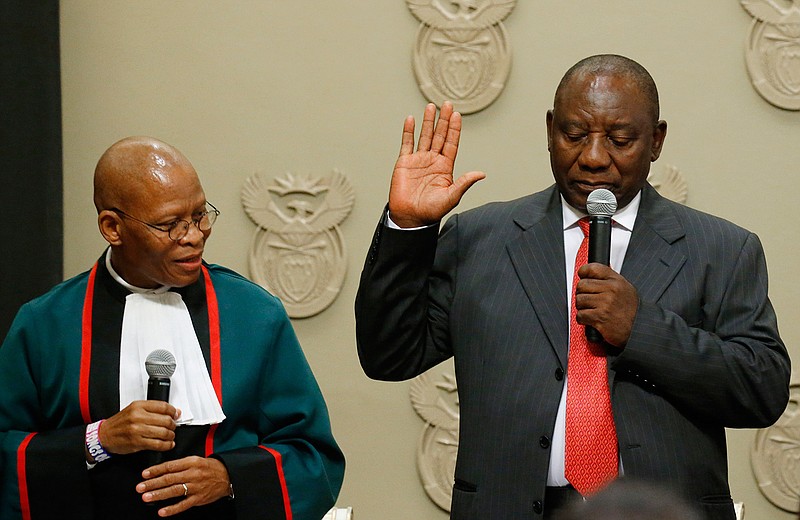CAPE TOWN, South Africa-Cyril Ramaphosa became South Africa's president with a message of clean government and inclusiveness on Thursday, stirring the hopes of many South Africans that he can reverse a corrosive period of decline and division under his predecessor, Jacob Zuma.
Ramaphosa, a lead negotiator in the transition from apartheid to democracy in the early 1990s, was elected by jubilant ruling party legislators anxious to shed political limbo and get the leadership of the country back on track. In an indication of the challenges facing Ramaphosa, the two main opposition parties did not participate in the National Assembly vote, arguing it was a sham process because the ruling African National Congress party was tainted by its association with corruption scandals during the Zuma era.
Even so, the 65-year-old Ramaphosa delivered a measured, conciliatory speech to lawmakers in a chamber that had been the scene of heckling and sometimes scuffles during appearances by Zuma, who resigned late Wednesday after protracted discussions with ANC leaders who told him to step down or face a parliamentary motion of no confidence.
Chief Justice Mogoeng Mogoeng presided over the parliamentary election as well as a separate swearing-in ceremony for Ramaphosa, who had been Zuma's deputy and in December was narrowly elected leader of the ruling party over Zuma's ex-wife, Nkosazana Dlamini-Zuma.
While Ramaphosa has consolidated his control of the ANC in recent weeks, he still faces the delicate task of removing compromised figures from the old administration as part of his anti-corruption drive while trying to avoid alienating ruling party factions that could try to undercut him. He must also restore the reputation of the ANC, which fought apartheid and has been in power since Nelson Mandela was elected South Africa's first black president in the first all-race elections in 1994.
The party's popularity fell as anger over corruption allegations grew and it suffered its worst showing at the polls in municipal elections in 2016. Investor jitters over the political situation contributed to sluggish economic growth, compounding generational problems of poverty and economic inequity that will put early pressure on Ramaphosa's administration.
Still, the South African rand strengthened Thursday to its highest level against the dollar in several years amid a sense that the new president represents stability and transparency lacking under his predecessor.
The foundation of Mandela, who died in 2013, said the state must now act against "networks of criminality" that have hurt the country's democracy.
As the country marks the centenary of Mandela's 1918 birth, "there is a need to reckon with the failures of the democratic era," the foundation said. "We believe that we are at a critical moment in our history, one which offers us the unique opportunity to reflect, to rebuild, and to transform."

